I'm not sure how the continue statement is interpreted when it is inside a for loop with an else clause.
If the condition is true, the break will exit from a for loop and else part will not be executed. And if the condition is False then else part will be executed.
But, what about continue statement? I tested it seems that the after the continue statement is reached, the else part will be executed. Is this true?? Here is a code example:
# when condition found and it's `true` then `else` part is executing :
edibles = ["ham", "spam", "eggs","nuts"]
for food in edibles:
if food == "spam":
print("No more spam please!")
continue
print("Great, delicious " + food)
else:
print("I am so glad: No spam!")
print("Finally, I finished stuffing myself")`
If I remove "spam" from the list, now the condition is always false and never found but still the else part is executed:
edibles = ["ham","eggs","nuts"]
for food in edibles:
if food == "spam":
print("No more spam please!")
continue
print("Great, delicious " + food)
else:
print("I am so glad: No spam!")
print("Finally, I finished stuffing myself")
